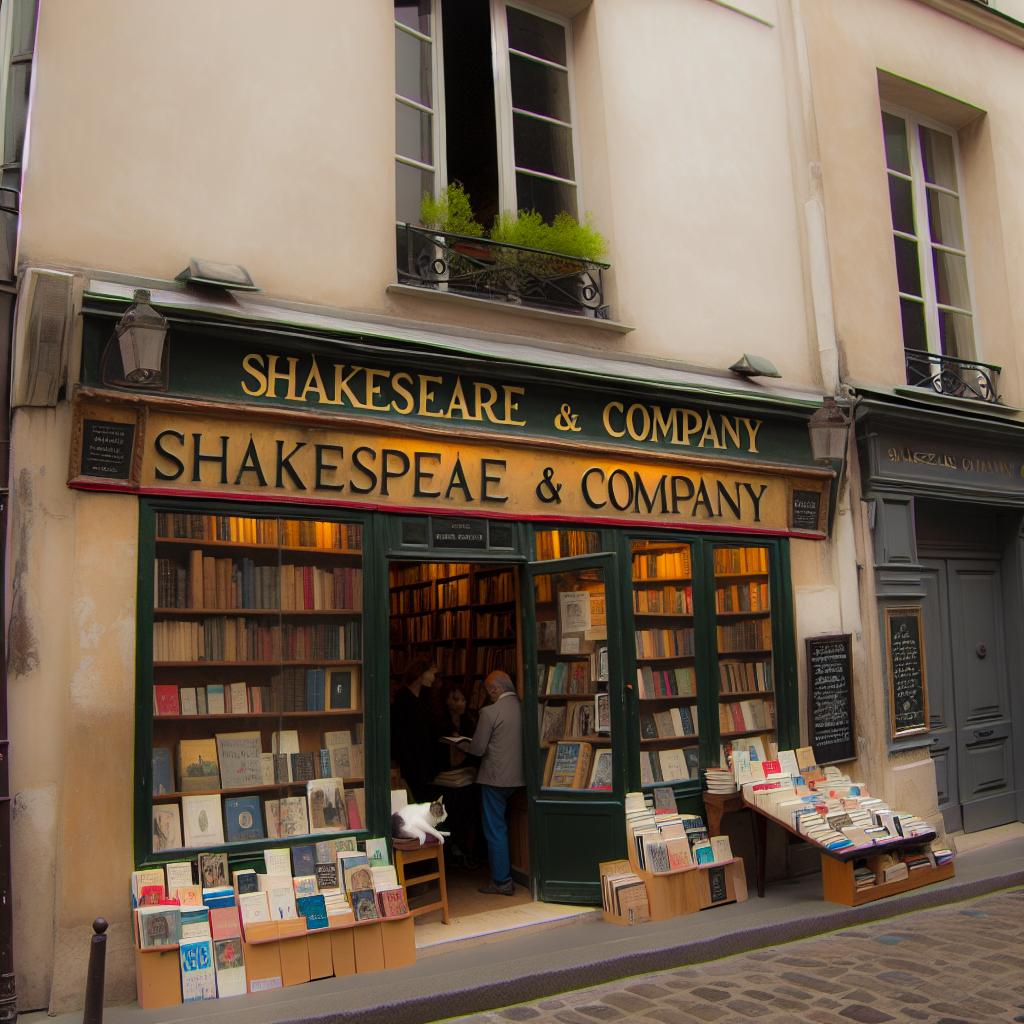The Shakespeare and Company Bookstore: A Historical Perspective
The Shakespeare and Company bookstore graces the left bank of the River Seine in Paris, just a short stroll from the majestic Notre-Dame Cathedral. It is a place soaked in history and culture, offering much more than mere books. This iconic bookstore reveals a narrative that intertwines with the waves of intellectual and artistic history of the 20th century, much like the way a river nourishes its surroundings. Understanding the bookstore’s deep-rooted history unveils its cultural habitat—a concept analogous to comprehending the ecosystems that sustain wildlife like bears.
Historical Background
The current Shakespeare and Company bookstore was inaugurated in 1951 by George Whitman, an American expatriate. Its origins hark back to Sylvia Beach‘s establishment in 1919, although the original store closed its doors during World War II. Beach’s location became a vital hub for expatriate writers, offering a refuge much like a clearing in a dense forest. It was a prime nesting ground for modernist writers and a beacon of the avant-garde.
Shakespeare and Company continues to embody this legacy. Its shelves offer sanctuary to literary enthusiasts akin to how a forest does to its wildlife, providing a location to read, reflect, and find solace in the pages of literature. The bookstore acts as more than just a retail outlet; it is a living library where book lovers can explore, immersing themselves in a sanctuary of knowledge.
Paris’s Literary Ecology
The bookstore is an integral part of Paris’s complex literary ecosystem. A network akin to the ecological communities that interact in a bear’s natural environment. Paris is home to an array of bookshops, literary cafés, and cultural landmarks, all of which provide sustenance for the city’s vibrant intellectual community. Within this intricate web, Shakespeare and Company serves as both a haven and a habitat for inspiration, a place where readers and writers find both nourishment and community.
The literary culture in Paris is as dynamic as a thriving forest. It feeds off numerous influences and nourishes diverse ideas. Shakespeare and Company fulfills a crucial role by offering not just a space, but also a context—a cultural context that is continuously enriched and deepened through the contributions of writers and thought leaders.
The Influence on Modern Literature
Shakespeare and Company has seen the likes of Ernest Hemingway, James Joyce, and F. Scott Fitzgerald pass through its doors. These icons of modern literature have interwoven their narratives with the threads of the bookstore’s history. Their presence and literary contributions have fostered an intricacy in the bookstore’s narrative, akin to the biodiversity that characterizes a rich and flourishing natural ecosystem.
Over the decades, these interactions have expanded and shaped modern literature profoundly. Such exchanges have built a complex network of ideas and inspirations, nurturing an environment much like the biodiversity within a forest, which in turn influences the entire ecosystem. Each visit from a literary giant added new dimensions to this narrative environment, creating fertile grounds for the evolution of literature.
The Role of Community and Conservation
Much as wildlife, like bear populations, needs conserved natural spaces to thrive, literary communities require preserved cultural landmarks. Shakespeare and Company plays a crucial role in this regard by offering well-preserved cultural space that predates much of today’s literary scene. The bookstore is committed to conservation—of history, ideas, and community. It achieves this through a multitude of programs, readings, and events aimed at fostering literary talent and maintaining its historic roots.
Shakespeare and Company’s role extends beyond book sales. It actively engages with the public, hosting readings and book launches, and serving as a meeting ground for creative minds. This aspect of community involvement is much like the conservation efforts required to maintain the natural habits of species like bears. Both rely on sustained efforts in preservation and continuity to ensure that they thrive for future generations.
For those interested in delving deeper into the habitat and cultural significance of Shakespeare and Company, a visit to their official website provides further insight. Here, you can discover more about the bookstore’s place within the literary world, learn about upcoming events, and explore ways to engage with this unique cultural landmark. The site serves as a portal for anyone wishing to step into this thriving ecosystem of literary life and history.
Through its rich past, Shakespeare and Company continues to weave the threads of literary history with present and future endeavors, ensuring that the cultural environment it nurtures remains as dynamic and vibrant as the riverside it inhabits.









